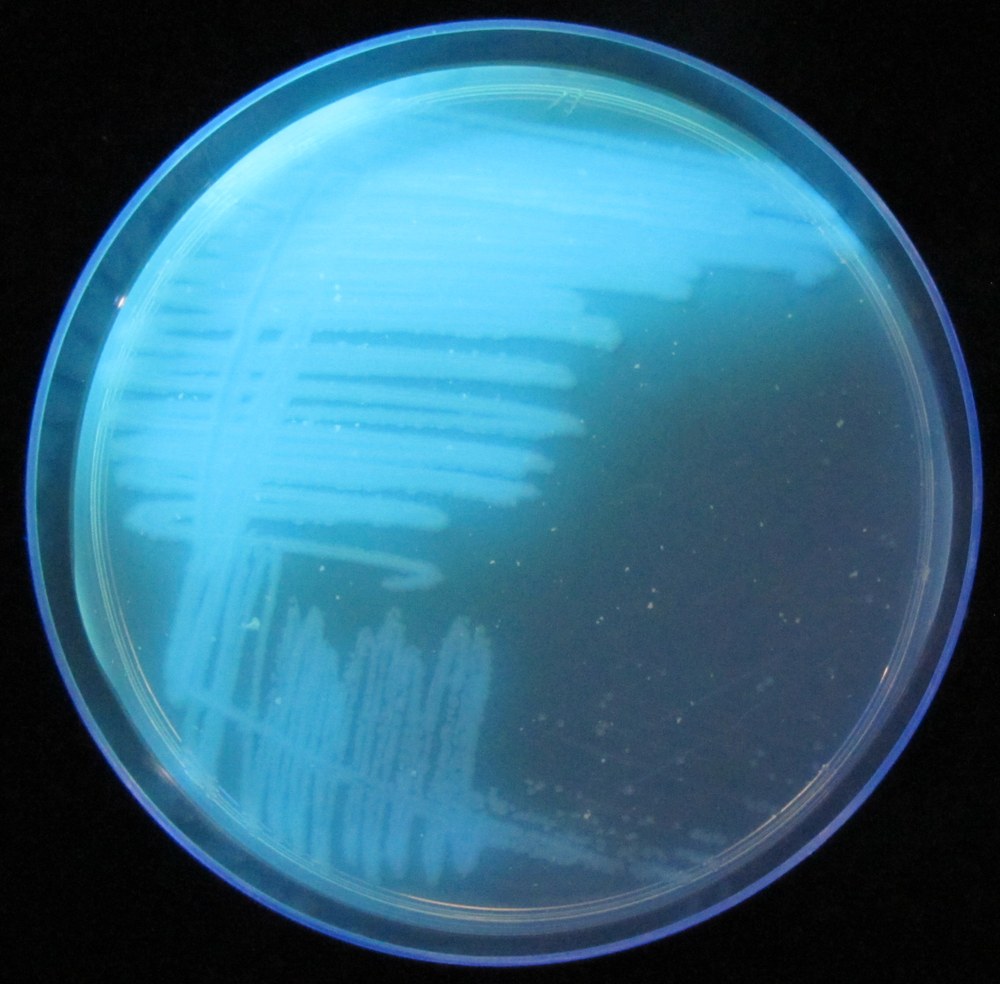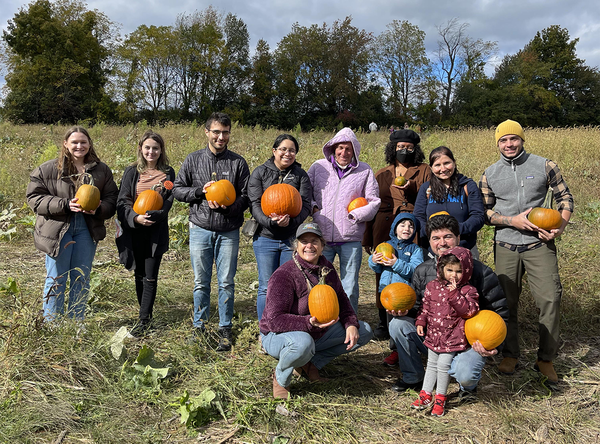Research in our lab focuses on Translational Taxonomy. Understanding the taxonomy of bacterial pathogens and the breadth of their diversity on plants allows us to target specific populations for disease control.

The warm glow of Pseudomonas (Photo by Marianne Ortiz-Lytle).
Our projects are derived from real world disease epidemics faced by regional crop producers. We bring cutting edge technologies and taxonomic thought to bare on illuminating the details of ecological relationships between the microbes and plants, the environment, and other microorganisms. This understanding is then brought back to the field to solve disease management issues. One of the primary goals of our program is to understand the pathovar structure of phytobacterial pathogens and to propose alternative classifications/nomenclature that help the understanding of the complex relationships among bacterial plant pathogens.

The Northeast Arugula Team (NEAT) aims to improve profitability for arugula growers in the Northeast through research and education.
This USDA Organic Research and Extension Initiative is designed to investigate predators of soil microbes. Micro-predators are an essential part of healthy organic soils, but the impact of organic management on most predators is unknown. This project will investigate how organic matter amendments affect soil micro-predator diversity to promote crop health.
Know Thine Enemy is the first rule of research for the Bull Penn Lab
Word 2007 document, 716.9 KB

